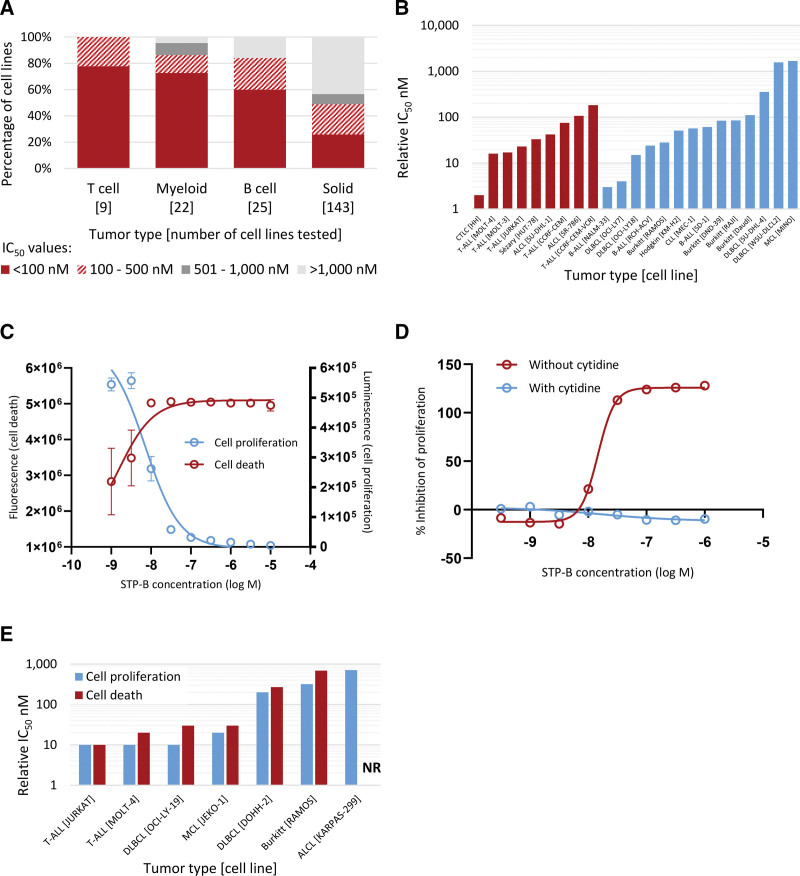Figure 2.
Selective inhibition of CTPS1 inhibits the proliferation and induces dose-dependent death of human neoplastic cells in vitro. (A) Sensitivity of 199 human cancer cell lines to inhibition of proliferation by STP-B, a selective CTPS1 inhibitor. (B) Individual IC50 values for 9 cell lines derived from human T-cell malignancies (red) and 14 cell lines derived from human B-cell malignancies excluding myeloma (blue), showing nanomolar range sensitivity to STP-B for the majority of cell lines tested. (C) Dose-dependent inhibition of proliferation and induction of cell death by STP-B for JURKAT cells. (D) Inhibition of proliferation of human neoplastic T-cells (JURKAT) showing complete reversal of the antiproliferative effects of STP-B by the addition of cytidine, demonstrating that the block in proliferation is due to on-target inhibition of CTP synthase. (E) STP-B relative IC50 values for cell proliferation and cell death showing induction of cell death at nanomolar concentrations of STP-B in 6 of 7 cell lines tested. ALCL = anaplastic large cell lymphoma; B-ALL = B-cell acute lymphoblastic leukemia; CLL = chronic lymphocytic leukemia; CTCL = cutaneous T-cell lymphoma; CTPS = cytidine triphosphate synthase; DLBCL = diffuse large B-cell lymphoma; IC50 = half maximal inhibitory concentration; MCL = mantle cell lymphoma; NR = not reached; T-ALL = T-cell acute lymphoblastic leukemia.

